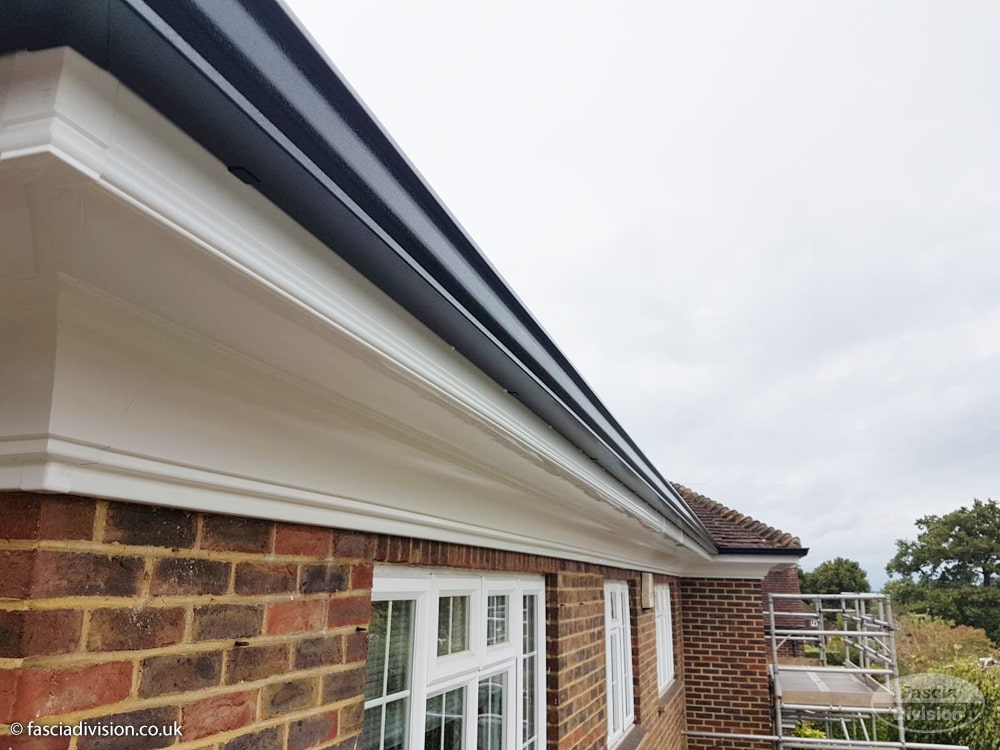The 10 Most Scariest Things About Fascia And Soffit Maintenance
페이지 정보
작성자 Noah 작성일25-07-17 10:35 조회4회 댓글0건본문

Fascia and Soffit Maintenance: A Comprehensive Guide
When it concerns keeping a house, the value of exterior aspects like fascia and soffit can not be overstated. These parts not just contribute to the aesthetic appeal of a residential or commercial property but likewise serve necessary functions in regards to ventilation, wetness control, and structural integrity. This short article looks into Fascia And soffit maintenance - http://47.106.140.17/ -, covering their meanings, functions, common problems, and effective maintenance practices to ensure their durability and efficiency.
Understanding Fascia and Soffit
Fascia is the vertical board that runs along the edge of the roofing, typically where the roof eaves extend. It holds the gutter system in location and is frequently painted to match or emphasize the outside of the home.
Soffit, on the other hand, is the horizontal board that links the fascia to the home's outside wall. Soffits are generally vented to allow airflow into the attic space, promoting ventilation and preventing heat and moisture buildup.
Functions of Fascia and Soffit
The main functions of fascia and soffit consist of:
- Protection: They shield the attic and roofing system structure from the components, consisting of rain, snow, and pests.
- Ventilation: The vented soffit allows for proper air flow, which helps to prevent mold and condensation in the attic.
- Visual Appeal: Both fascia and soffit add to the overall curb appeal of a home, enhancing its visual interest.
Typical Issues with Fascia and Soffit
Like any part of a home, fascia and soffit can face a variety of problems that may compromise their effectiveness. Typical issues include:
- Rotting: Moisture and humidity can cause wood rot in both fascia and soffit, damaging their structural stability.
- Bug Infestation: Insects, like bees, wasps, and termites, might nest in these locations if left unchecked.
- Peeling Paint: As weather and time take their toll, paint can begin to peel, interfering with the home's appearance and permitting more wetness seepage.
- Gutter Issues: Poorly set up or maintained gutters can overflow, leading to water damage and soil disintegration around fascia and soffit.
- Vent Blockages: Dust, particles, and nesting products can impede airflow from soffit vents, leading to incorrect ventilation in the attic.
Maintenance Tips for Fascia and Soffit
Routine maintenance is vital for guaranteeing fascia and soffit stay functional and appealing. Here are some vital maintenance actions:
1. Regular Inspections
Conduct routine assessments, specifically after serious weather condition, to look for indications of damage or wear. Look for:
- Cracks or splits in the fascia
- Indications of rot or mold
- Loose or sagging areas
- Bug activity
2. Clean Gutters and Downspouts
Clogged up seamless gutters can result in water pooling, which increases the threat of decaying fascia and soffit. Make sure gutters and downspouts are devoid of debris and working efficiently:
- Remove leaves, twigs, and dirt
- Flush with water to check drainage
- Clear any obstructions
3. Painting and Finishing
If fascia and soffit are wood, painting or staining them can improve their resistance to wetness and pests:
- Choose durable, weather-resistant paint or stain
- Repaint every few years as required
- Repair any peeling before repainting to ensure adhesion
4. Make Sure Proper Ventilation
To avoid moisture accumulation in the attic, guarantee that soffit vents remain clear:
- Remove any clogs triggered by particles or insects
- Clear outside soffit holes to allow proper airflow
5. Replace Damaged Materials
If any fascia or soffit boards show substantial damage or rot, replace them immediately to prevent additional concerns:
- Use rot-resistant materials like PVC or aluminum
- Seek advice from a professional for substantial damage
6. Professional Inspection and Repairs
For any significant issues, such as pest infestations or serious structural problems, enlist a professional for an extensive maintenance:
- Schedule a yearly professional examination
- Address problems promptly to prevent pricey repairs later
Table: Maintenance Checklist for Fascia and Soffit
| Maintenance Task | Frequency | Notes |
|---|---|---|
| Visual Inspection | Month-to-month | Search for damage, rot, and bug activity |
| Tidy Gutters | Bi-annually | Guarantee effective water drain |
| Paint/Stain | Every 3-5 years | Usage weather-resistant products |
| Clear Soffit Vents | Every year | Avoid airflow blockages |
| Change Damaged Sections | As needed | Use rot-resistant products |
| Professional Inspection | Yearly | Speak with an expert for major issues |
Frequently asked questions About Fascia and Soffit Maintenance
Q: How frequently need to I inspect my fascia and soffit?A: It is advised
to examine these features monthly, particularly after severe weather. Q: Can I paint fascia and soffit myself?A: Yes, many property owners choose to do this themselves. Nevertheless, guarantee you follow proper precaution and pick weather-resistant paint for enduring outcomes. Q: What should I do if I discover rot on my fascia?A: If the damage is minimal, you may be able to
repair it with wood filler or epoxy. For comprehensive damage, changing the impacted section is a good idea. Q: How does poor ventilation affect my attic?A: Poor ventilation can result in moisture buildup, which can cause mold development, structural damage,and increased energy costs due to ineffective heating & cooling. Q: Are there any materials that are much better fit for fascia and soffit?A: Yes, vinyl, aluminum, and dealt with wood are popular choices due to their durability and resistance to
rot and insects. Preserving fascia and soffit is vital for protecting the stability, security, and aesthetic appeal of a home. Regular evaluations, cleansing, painting, making sure proper ventilation,
and professional interventions when needed can significantly extend the life of these crucial parts. Property owners need to stay proactive in their maintenance efforts to avoid expensive repairs and guarantee their homes remain secured from the elements.
댓글목록
등록된 댓글이 없습니다.




















